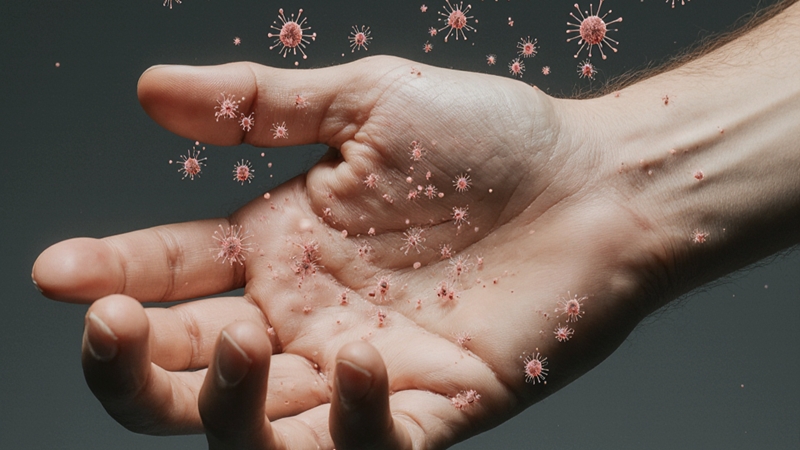Uncategorized
The Dangers of Not Washing Your Hands
Introduction
Handwashing might seem like a small daily habit, but it is one of the most powerful ways to protect yourself and others from illness. When people forget or choose not to wash their hands, they expose themselves to many hidden risks. The dangers go far beyond just getting a little dirty—unwashed hands can carry harmful germs that spread quickly and cause serious health problems. In this blog post, we will explore the real dangers of not washing your hands, how they affect your health, and why this simple habit should never be ignored.
Why Handwashing Matters
Our hands touch almost everything throughout the day—doorknobs, phones, money, keyboards, food, and even our own faces. Each of these surfaces carries invisible germs. When you don’t wash your hands, those germs remain and easily enter your body through your eyes, mouth, or nose. What seems harmless can actually turn into an open door for infections.
The Main Dangers of Not Washing Your Hands
Spreading Harmful Bacteria and Viruses
One of the biggest dangers is the rapid spread of bacteria and viruses. Germs like E. coli, Salmonella, and the flu virus often travel through touch. If you prepare food without washing your hands, you can contaminate it and cause food poisoning. If you touch your face, you can get sick yourself. If you touch other people or surfaces, you pass germs to them, continuing the cycle.
Increased Risk of Foodborne Illnesses
Foodborne illnesses are among the most common dangers related to dirty hands. When hands are not washed before cooking or eating, germs can spread to food and drinks. This can lead to symptoms like nausea, vomiting, diarrhea, and stomach pain. In severe cases, food poisoning can require hospital treatment.
Respiratory Infections
Colds, the flu, and even more serious infections like COVID-19 can spread through unwashed hands. Touching your nose or mouth without clean hands gives viruses an easy path into your body. These infections are among the most common dangers for people who skip proper hand hygiene.
Serious Diseases for Children
Children are especially at risk. They often touch their faces and put objects in their mouths, making them more likely to get sick. The dangers for children include diarrhea, stomach infections, and respiratory illnesses, which can quickly spread in schools and playgrounds.
Antibiotic-Resistant Germs
One of the hidden dangers is the spread of antibiotic-resistant bacteria. These germs are harder to treat with medicine, and unwashed hands help them travel faster between people. This makes infections more difficult and expensive to cure.

Everyday Situations Where Dangers Increase
- After Using the Bathroom: Not washing your hands can spread dangerous germs like E. coli, leading to stomach illnesses.
- Before Eating or Cooking: Food can carry bacteria from dirty hands straight into your digestive system.
- After Coughing or Sneezing: Germs from your mouth and nose stick to your hands and can spread to others.
- At Work or School: Shared items like pens, desks, or keyboards easily transfer germs when hands are not clean.
- After Touching Animals or Garbage: These are common sources of bacteria and parasites that can harm your health.
The Wider Dangers for Society
The dangers of not washing hands do not just affect one person—they impact entire communities. For example:
- Outbreaks in schools or workplaces can spread quickly.
- Hospitals face higher infection rates if staff or visitors ignore handwashing rules.
- Economies lose billions of dollars every year due to sick days and medical costs linked to preventable diseases.
How to Reduce These Dangers
The good news is that preventing these dangers is simple. Proper handwashing with soap and clean water removes germs effectively. Here’s how to do it correctly:
- Wet your hands with clean water.
- Apply enough soap to cover all surfaces.
- Scrub for at least 20 seconds, including the back of hands, between fingers, and under nails.
- Rinse thoroughly with water.
- Dry with a clean towel or air dryer.
If soap and water are not available, using a hand sanitizer with at least 60% alcohol is a good alternative.
Conclusion
The dangers of not washing your hands may seem invisible, but they are very real. From spreading foodborne illnesses and respiratory infections to encouraging the growth of antibiotic-resistant bacteria, the risks affect everyone—especially children and vulnerable people. The simple act of washing your hands is one of the easiest and most effective ways to protect yourself, your family, and your community from these dangers.
You can easily find more of our blogs on Sanixway blog section!

